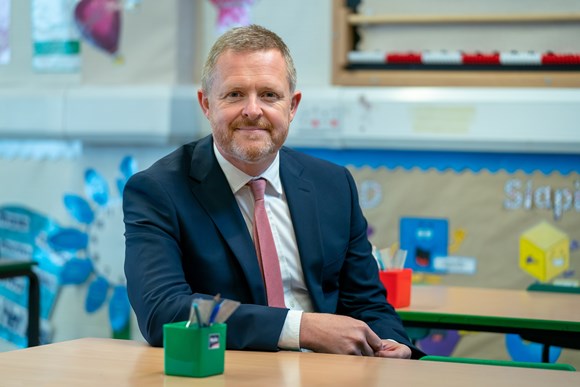Supporting the emotional and mental well-being of learners is essential if we are to support every young person to reach their full potential

Statement from Jeremy Miles (@Jeremy_Miles), the Minister for Education and Welsh Language:
We have acted at pace. In the current year alone we have provided record levels of funding to support learners. This has resulted in an additional 24,000 counselling sessions benefiting an additional 6000 children and young people. We have provided funding to deliver both universal and targeted well-being interventions for nearly 30,000 children and young people; we have helped to train over 4000 school staff; and we are rolling out our CAMHS school in-reach pilots nationally, with over 100 full time equivalent mental health practitioners providing support directly in schools
But there is still more to do. Supporting schools to develop a whole-school approach to mental health and well-being is key to our strategy – that is how we will enable the fundamental changes we all want to see across our education system. The Framework on embedding a whole-school approach was published in March and we have made it statutory guidance.
This is a long term piece of work and I want to ensure that our work in schools is replicated across other public services and across communities.
This is why we have ensured strong links between our whole-school approach framework and the Together for Children and Young People NEST/NYTH framework, which compliments our whole-school Framework by to strengthening the response of our partners and the whole-system to the well-being of our children and young people.
I also want to ensure our successful work in schools is extended across the whole education system.
I have therefore identified further education as a priority for early action:
Investment has been made to support the mental health and well-being of both staff and learners within the further education sector, with nearly £7m allocated to support a range of tailored initiatives. Part of this investment has also been dedicated to the work based learning and adult learning sectors.
Funding is being used to support National, Collaborative and Institutional projects, which include staff training, peer mentoring and the employment of pastoral coaches and well-being officers as well as providing counselling.
Higher education also remains a priority. We all know the challenges students have faced since the start of the pandemic. Over the past year we have allocated an additional £50m, through HEFCW, to help universities address student hardship. This included £10m to provide increased support to students facing financial, emotional or mental health difficulties. Support for students in higher education is tailored to their needs, reflecting their status as independent adults and recognising the particular pressures they face around living independently, managing their own money and coping with the challenge of independent study.
I want ambition to be at the heart of our work and in thinking about the mental, physical and social well-being of our young people. It is therefore right that we consider how and when we learn. As such, we have committed, in the Programme for Government, to “explore reform of the school day and the school year”.
We haven’t had a serious conversation about the way we structure school time in Wales for decades. That’s far too long.
Going back to ‘normal’, without first discussing it in the context of staff and learner well-being, tackling the impact of disadvantage on attainment and curriculum reform would be a wasted opportunity. I am leading work on the rhythm of the school day and year, and conversations with learners, school staff, families, employers, unions and communities across the country over the coming weeks will underpin our wider work. Starting by talking to young people themselves, the school workforce and business representatives, followed by wider national engagement in the run up to Christmas, I will speak first hand to those who can benefit most from reform, and who can best help us shape our proposals.
At the same time, we are reviewing UK and international evidence to identify new ways to provide learners with opportunities to learn new skills and engage in new activities. These opportunities can lead to improved emotional well-being and mental health, increased participation in physical activities, healthier eating habits, and improved social skills, as well as increased levels of confidence, school readiness and socialisation. An important part of this is aligning how we access learning with modern patterns of living.
Work is now beginning in earnest and I will announce further details over coming weeks.
To conclude Llywydd, we in Wales have a proud record of supporting mental health and wellbeing. Working across the sector, with key partners, we will continue on our journey in supporting a culture change across our education system, where mental wellbeing is put front and centre in all that we do.












Responses